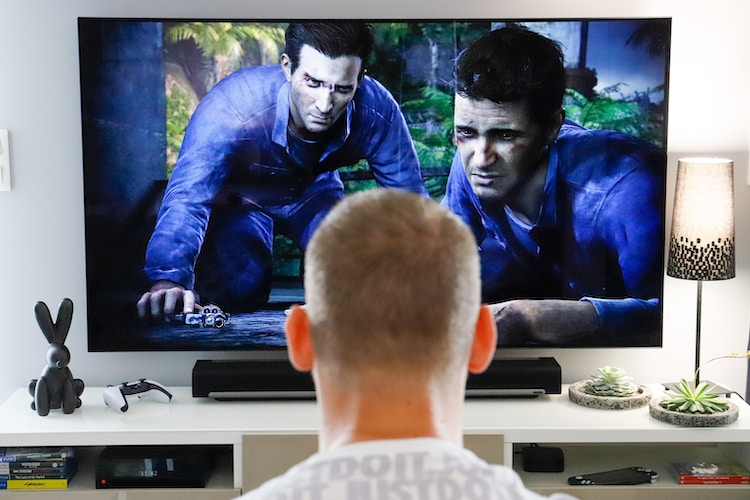
Television has been a staple of entertainment and information for decades, but did you know that it can also teach us valuable lessons about learning? From educational shows to compelling narratives, TV has the power to inspire and educate viewers of all ages. In this article, we will explore 20 secrets about learning that you can learn from TV programs.

1. The Power of Curiosity
TV shows often ignite curiosity by presenting intriguing storylines, mysteries, and questions. Just like in TV programs, curiosity is a driving force in learning. By nurturing curiosity, we become motivated to seek knowledge and explore new ideas.
2. Embracing Diversity
Television offers a diverse range of characters and perspectives. Similarly, in learning, embracing diversity enriches our understanding of the world. By engaging with different cultures, ideas, and viewpoints, we broaden our horizons and become more open-minded.
3. Visual Learning
TV is a visual medium that engages our senses and enhances learning through compelling visuals. Incorporating visual elements in educational settings can improve comprehension and retention, making learning more effective and enjoyable.
4. Storytelling
TV shows captivate us with compelling stories that evoke emotions and connect us to the characters. Storytelling is a powerful tool in education as well. By weaving narratives into lessons, educators can make abstract concepts relatable and memorable.
5. Problem-Solving Skills
Many TV shows feature characters who face challenges and solve complex problems. Observing their problem-solving strategies can inspire us to develop our own critical thinking and analytical skills.
6. Active Engagement
Engaging TV programs demand our attention and require active participation. Similarly, in learning, active engagement promotes deeper understanding and retention. By actively participating in discussions, debates, and hands-on activities, we enhance our learning experience.
7. Teamwork and Collaboration
TV shows often highlight the power of teamwork and collaboration. Learning is also enhanced through collaborative activities, group projects, and peer learning. Working together with others fosters cooperation, communication, and the exchange of ideas.
8. Adapting to Change
TV programs frequently present characters who navigate unexpected situations and adapt to change. Learning also involves embracing change and being open to new ideas and perspectives. Flexibility and adaptability are crucial skills in a rapidly evolving world.
9. Lifelong Learning
TV programs often depict characters who continuously learn and grow. Similarly, learning is a lifelong journey. TV shows remind us that learning doesn’t end with formal education but is a constant process of personal and intellectual development.
10. Making Learning Fun
TV shows know how to make learning entertaining and enjoyable. In education, incorporating elements of fun and playfulness can increase motivation and engagement. By infusing creativity and interactive activities, learning becomes a joyful experience.
11. Emphasizing Real-World Relevance
TV programs often connect fictional scenarios to real-world issues and challenges. Similarly, learning gains significance when students understand its relevance to their lives. Making connections to real-world applications fosters a deeper appreciation for knowledge.
12. Emotional Intelligence
TV shows often explore complex emotions and interpersonal relationships. Learning encompasses emotional intelligence, the ability to understand and manage emotions. Developing empathy, self-awareness, and social skills are essential aspects of a well-rounded education.
13. Cultivating Critical Thinking
TV programs engage viewers’ critical thinking skills by presenting thought-provoking scenarios and plot twists. Similarly, education should encourage critical thinking, empowering students to analyze information, evaluate evidence, and think independently.
14. Role Models and Inspiration
TV shows often feature inspiring characters who overcome challenges and achieve greatness. Similarly, learning benefits from positive role models who inspire and motivate students to strive for their goals and pursue their passions.
15. Expanding Vocabulary
Television exposes viewers to a wide range of vocabulary. Similarly, learning involves expanding our vocabulary to communicate effectively and comprehend complex concepts. TV programs can serve as a catalyst for language development.
16. Experiential Learning
Some TV shows offer immersive experiences and virtual adventures. Experiential learning, which involves hands-on experiences and real-world applications, enhances understanding and makes learning more tangible and meaningful.
17. Cultivating Creativity
TV shows often spark imagination and creativity through their storytelling and visuals. Education can foster creativity by encouraging students to think outside the box, express themselves artistically, and find innovative solutions to problems.
18. Cross-Curricular Connections
TV programs often integrate various subjects, demonstrating how different disciplines intersect. Similarly, learning benefits from making cross-curricular connections, showing students the interconnectedness of knowledge and the relevance of multiple subjects.
19. Empowering Personal Growth
TV shows often depict characters who undergo personal growth and transformation. Learning is not just about acquiring knowledge but also about personal development, self-discovery, and the cultivation of essential life skills.
20. Inspiring Lifelong Passions
TV programs can ignite passions and inspire viewers to explore new interests. Likewise, education should strive to spark curiosity and help students discover their passions, fostering a lifelong love for learning.
In conclusion, TV programs hold valuable lessons about learning that can be applied to educational settings. From nurturing curiosity and embracing diversity to promoting critical thinking and creativity, these 20 secrets remind us that learning goes beyond the confines of a classroom. By recognizing and incorporating these principles, we can create engaging and effective learning environments that empower students to thrive and reach their full potential.





